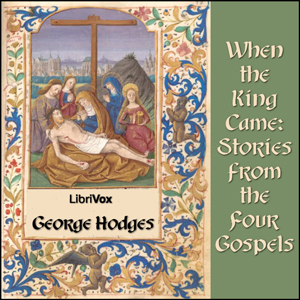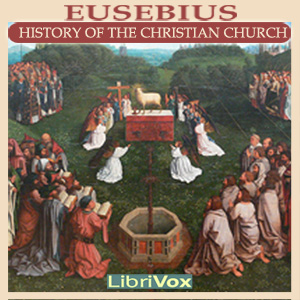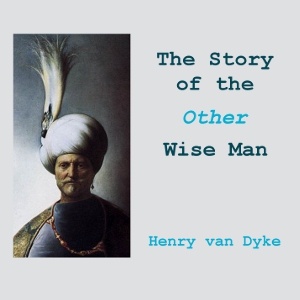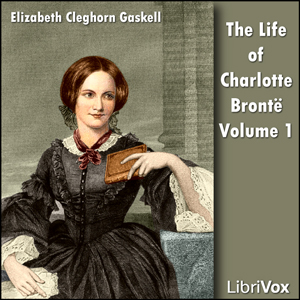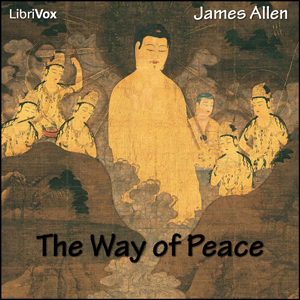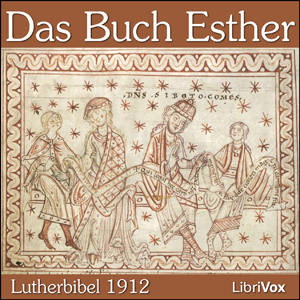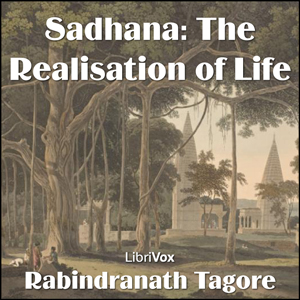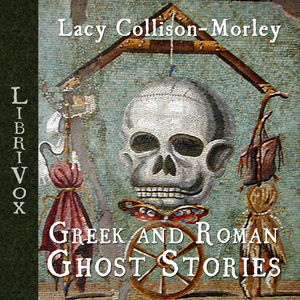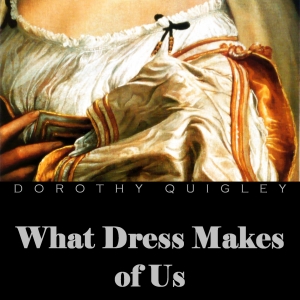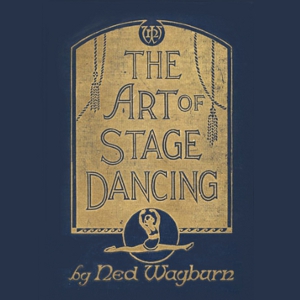This is the official report, published nearly 11 months after the first and only atomic bombings in history (to date), of a group of military physicians and engineers who accompanied the initial contingent of U.S. soldiers into the destroyed cities of Hiroshima and Nagasaki. The report presents a clinical description of the devastation, loss of life and continued suffering of the survivors that resulted from the world's first and only atomic bombings, to date. The appendix is an eyewitness account, contrasting vividly with the dispassionate sang-froid of the report itself, written by a German Jesuit priest who survived the blast at Hiroshima, and whose order assisted in rescue efforts following the catastrophic attack. This recording was completed on the 63rd anniversary of the events. (Summary by Dennis Sayers).
8 episodes
THIS tells how once the King of Glory came from heaven to visit us here on earth and live amongst us; how He was born in Bethlehem and brought up in Nazareth; how He went about telling people of the Heavenly Kingdom, and doing good, ministering to the sick and the poor; how He was misunderstood, and disliked, and even hated, till at last they took Him in Jerusalem and nailed Him to a cross so that He died; and how, after that, He came to life again, and went back into heaven, promising to return. (Summary from the Preface of When the King Came)
49 episodes
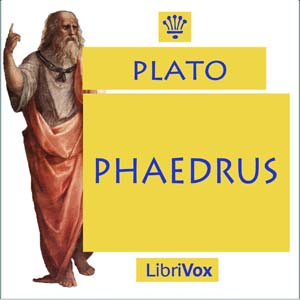
“For there is no light of justice or temperance, or any of the higher ideas which are precious to souls, in the earthly copies of them: they are seen through a glass, dimly…”Socrates and his earnest friend Phaedrus, enjoying the Athenian equivalent of a lunchtime stroll in the park, exchange views on love and on the power of words, spoken and written.Phaedrus is the most enchanting of Plato’s Erotic dialogues (capitalised in honour of the god). The barefoot philosopher urges an eager young acquaintance – who has allowed his lover’s oratorical skills to impress him overmuch – to re-examine the text of Lysias’s speech in the light of his own exalted (and Platonic) vision of Love. Not long ago this early example of literary dismantling was itself deconstructed by a contemporary sage - Jacques Derrida. The present reader tries to present Socrates as he conceivably was: the chortling, pot-bellied ex-soldier, a flirtatious yet charismatic talker with a serious passion for Truth. (Introduction by Martin Geeson)
14 episodes
Eusebius presents the history of the Church from the apostles to his own time, with special regard to the following points:
1. the successions of bishops in the principal sees
2. the history of Christian teachers
3. the history of heresies
4. the history of the Jews
5. the relations to the heathen
6. the martyrdoms. (Summary adapted from Wikipedia)
37 episodes
A great dog story, a well told tale--the naturalist and adventurer John Muir recounts how he and his companion, a dog named Stickeen, each, alone, confronted and conquered their fears of an icy Alaskan glacier in 1880. (Summary by Sue Anderson)
3 episodes
It is under a deep impression that the place and power of prayer in the Christian life is too little understood, that this book has been written. I feel sure that as long as we look on prayer chiefly as the means of maintaining our own Christian life, we shall not know fully what it is meant to be. But when we learn to regard it as the highest part of the work entrusted to us, the root and strength of all other work, we shall see that there is nothing that we so need to study and practise as the art of praying aright. ... the Father waits to hear every prayer of faith, to give us whatsoever we will, and whatsoever we ask in Jesus’ name. (Andrew Murray, quoted from the Preface of this book)
33 episodes
The purpose of the Apology is to prove to the emperors, renowned as upright and philosophical men, the injustice of the persecution of the Christians, who are the representatives of true philosophy … Christians are the true worshipers of God, the Creator of all things; they offer him the only sacrifices worthy of him, those of prayer and thanksgiving, and are taught by his Son, to whom they assign a place next in honor to him. This teaching leads them to perfect morality, as shown in their teacher's words and their own lives, and founded on their belief in the resurrection. (Summary from Wikipedia)
4 episodes
You know the story of the Three Wise Men of the East, and how they travelled from far away to offer their gifts at the manger-cradle in Bethlehem. But have you ever heard the story of the Other Wise Man, who also saw the star in its rising, and set out to follow it, yet did not arrive with his brethren in the presence of the young child Jesus? Of the great desire of this fourth pilgrim, and how it was denied, yet accomplished in the denial; of his many wanderings and the probations of his soul; of the long way of his seeking, and the strange way of his finding, the One whom he sought—I would tell the tale as I have heard fragments of it in the Hall of Dreams, in the palace of the Heart of Man. (Summary written by Henry van Dyke.)
2 episodes

This volume was originally written in Dutch by John Esquemeling, and first published in Amsterdam in 1678 under the title of De Americaeneche Zee Roovers. It immediately became very popular and this first hand history of the Buccaneers of America was soon translated into the principal European languages. The first English edition was printed in 1684. Esquemeling served the Buccaneers in the capacity of barber-surgeon, and was present at all their exploits. Little did he suspect that his first hand observations would some day be cherished as the only authentic and true history of the Buccaneers and Marooners of the Spanish Main.From time to time new editions of this work have been published, but in many cases much new material, not always authentic, has been added and the result has been to mar the original narrative as set forth by Esquemeling. In arranging this edition, the original English text only has been used, and but few changes made by cutting out the long and tedious description of plant and animal life of the West Indies of which Esquemeling had only a smattering of truth. But, the history of Captain Morgan and his fellow buccaneers is here printed almost identical with the original English translation, and we believe it is the first time this history has been published in a suitable form for the juvenile reader with no loss of interest to the adult.(Summary excerpted from the Introduction)
29 episodes
Up From Slavery is the 1901 autobiography of Booker T. Washington detailing his slow and steady rise from a slave child during the Civil War, to the difficulties and obstacles he overcame to get an education at the new Hampton University, to his work establishing vocational schools—most notably the Tuskegee Institute in Alabama—to help black people and other disadvantaged minorities learn useful, marketable skills and work to pull themselves, as a race, up by the bootstraps. He reflects on the generosity of both teachers and philanthropists who helped in educating blacks and native Americans. He describes his efforts to instill manners, breeding, health and a feeling of dignity to students. (Summary from Wikipedia)
18 episodes
A guide to different kinds of dreams, their meanings, and how they influence our waking lives. (Summary by Andrea Fiore)
3 episodes

Piracy embodies the romance of the sea at its highest expression. It is
a sad but inevitable commentary on our civilization, that, so far as the
sea is concerned, it has developed from its infancy down to a century or
so ago, under one phase or another of piracy. If men were savages on
land they were doubly so at sea, and all the years of maritime
adventure--years that added to the map of the world till there was
little left to discover--could not wholly eradicate the piratical germ.
It went out gradually with the settlement and ordering of the far-flung
British colonies. Great Britain, foremost of sea powers, must be
credited with doing more both directly and indirectly for the abolition
of crime and disorder on the high seas than any other force. But the
conquest was not complete till the advent of steam which chased the
sea-rover into the farthest corners of his domain. It is said that he
survives even today in certain spots in the Chinese waters,--but he is
certainly an innocuous relic. A pirate of any sort would be as great a
curiosity today if he could be caught and exhibited as a fabulous
monster.
(Summary from text)
20 episodes
Learn how to accomplish your goals through increasing your mental power, avoiding energy drains, and becoming more mentally efficient. (Summary by Andrea Fiore.)
5 episodes
Summary from A Practical Guide to Self-Hypnosis:
This book is written in terms that are comprehensible to the layman. The step-by-step instructions should afford the reader a means of acquiring self-hypnosis. The necessary material is here. The reader need only follow the instructions as they are given. It is the author's hope that you will, through the selective use of self-hypnosis, arrive at a more rewarding, well-adjusted, and fuller life.
13 episodes
Charlotte Brontë was a British author, the eldest of the three famous Brontë sisters who have become standards of English literature. She is best known for her novel Jane Eyre, one of the greatest classics of all time. Just two years after Charlotte's death, her friend Elizabeth Gaskell wrote her biography. Want to know more about Charlotte Brontë? If you do, please read this biography. Summary by Stav Nisser.
A recording of Volume 2 of this work is also available.
20 episodes

Mark Twain's work on Joan of Arc is titled in full "Personal Recollections of Joan of Arc, by the Sieur Louis de Conte." De Conte is identified as Joan's page and secretary. For those who've always wanted to "get behind" the Joan of Arc story and to better understand just what happened, Twain's narrative makes the story personal and very accessible.The work is fictionally presented as a translation from the manuscript by Jean Francois Alden, or, in the words of the published book, "Freely Translated out of the Ancient French into Modern English from the Original Unpublished Manuscript in the National Archives of France."It was originally published as a serialization in Harper's Magazine beginning in 1895 and later published in book form in 1896. However the Harper's editors decided to cut 12 chapters that describe much of Joan's Great Trial, saying the chapters were not suitable for serialization since, "They will not bear mutilation or interruption, but must be read as a whole, as one reads a drama." This recording contains the complete text!De Conte is a fictionalized version of Joan of Arc's page Louis de Contes, and provides narrative unity to the story. He is presented as an individual who was with Joan during the three major phases of her life - as a youth in Domremy, as the commander of Charles' army on military campaign, and as a defendant at the trial in Rouen. The book is presented as a translation by Alden of de Conte's memoirs, written in his later years for the benefit of his descendants.Twain based his descriptions of Joan of Arc on his daughter, Susy Clemens, as he remembered her at the age of seventeen.Twain said, "I like Joan of Arc best of all my books; and it is the best; I know it perfectly well. And besides, it furnished me seven times the pleasure afforded me by any of the others; twelve years of preparation, and two years of writing. The others needed no preparation and got none." (Summary by Wikipedia and John Greenman)
75 episodes
The Way of Peace is your guide to the power of meditation; self and truth; the acquirement of spiritual power; the realization of selfless love; entering into the infinite; saints, sages, and saviors; the law of service; and the realization of perfect peace. (Summary by Andrea Fiore)
7 episodes
This book is in no degree an attempt to relate the involved and intricate history of the Middle Ages. Its plan is, rather, to present pictures of the manner of life and habits of thought of the people who lived between the eighth and fifteenth centuries. Our writings and our everyday conversation are full of their phrases and of allusions to their ideas. Many of our thoughts and feelings and instincts, of our very follies and superstitions, have descended to us from them. To become better acquainted with them is to explain ourselves. (Summary from the Preface of When Knights Were Bold.)
16 episodes
The journal of nature-lover John Muir who spent the summer of 1869 walking California’s Sierra Nevada range. From French Bar to Mono Lake and the Yosemite Valley, Muir was awestruck by everything he saw. The antics of the smallest “insect people” amazed him as much as stunted thousand-year old Juniper trees growing with inconceivable tenacity from tiny cracks in the stone. Muir spent the rest of his life working to preserve the high Sierra, believing that “the clearest way into the Universe is through a forest wilderness.” John Muir (1838-1914) was born in Dunbar, Scotland and grew up in Wisconsin, USA. This recording commemorates the 140th anniversary of that first summer. (Summary by Adrian Praetzellis)
15 episodes
How does occultism regard vegetarianism? It regards it very favorably, and that for many reasons. These reasons may be divided into two classes: those which are ordinary and physical, and those which are occult or hidden. Let us see in detail why a vegetarian diet is emphatically the purest and the best. (Summary from Vegetarianism and Occultism)
15 episodes
Jonathan Edwards was a colonial American Congregational preacher, theologian, and missionary to Native Americans. Edwards "is widely acknowledged to be America's most important and original philosophical theologian." His work is very broad in scope, but he is often associated with his defense of Calvinist theology, the metaphysics of theological determinism, and the Puritan heritage. His famous sermon "Sinners in the Hands of an Angry God," emphasized the just wrath of God against sin and contrasted it with the provision of God for salvation; the intensity of his preaching sometimes resulted in members of the audience fainting, swooning, and other more obtrusive reactions. The swooning and other behaviors in his audience caught him up in a controversy over "bodily effects" of the Holy Spirit's presence. (Summary by Wikipedia)This collection contains nineteen of his sermons, including "Sinners in the Hands of an Angry God."
39 episodes
Boswell's famous work on the life of his admired friend Johnson, the formidable poet, essayist, moralist, literary critic, biographer, editor and lexicographer, is a milestone in the development of biographical writing, a treasure-house of Johnson's witticisms and opinions, and a window on his social circle that is packed with incidental detail of 18th-century life and concerns.This second of four volumes covers the years 1764-1776. (Summary by Philippa)
22 episodes
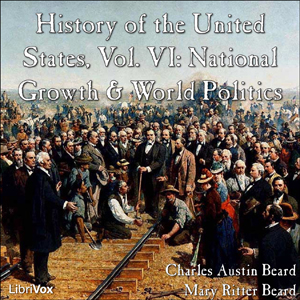
Charles Beard was the most influential American historian of the early 20th century. He published hundreds of monographs, textbooks and interpretive studies in both history and political science. He graduated from DePauw University in 1898, where he met and eventually married Mary Ritter Beard, one of the founders of the first greek-letter society for women, Kappa Alpha Theta. Many of his books were written in collaboration with his wife, whose own interests lay in feminism and the labor union movement.In 1921, Charles and Mary Beard published their textbook: History of the United States. A contemporaneous review stated: The authors… assume enough maturity in…students to justify a topical rather than a chronological treatment. They have dealt with movements, have sketched large backgrounds, have traced causes, and have discussed the interrelation of social and economic forces and politics. All this has been directed to the large purpose of helping the student to understand American today in all its national characteristics and as part of world civilization as well...The literary style is exceptionally clear and crisp, and the whole approach…is thought producing. As a textbook or handbook for the average citizen it ranks with very best.The book is divided into 7 parts: THE COLONIAL PERIOD, CONFLICT AND INDEPENDENCE, FOUNDATIONS OF THE UNION AND NATIONAL POLITICS, THE WEST AND JACKSONIAN DEMOCRACY, SECTIONAL CONFLICT AND RECONSTRUCTION, NATIONAL GROWTH AND WORLD POLITICS, AND PROGRESSIVE DEMOCRACY AND THE WORLD WAR. (Summary by TTM)
5 episodes

Summary from The Path of Prosperity:
I looked around upon the world, and saw that it was shadowed by sorrow and scorched by the fierce fires of suffering. And I looked for the cause. I looked around, but could not find it; I looked in books, but could not find it; I looked within, and found there both the cause and the self-made nature of that cause. I looked again, and deeper, and found the remedy.
I found one Law, the Law of Love; one Life, the Life of adjustment to that Law; one Truth, the truth of a conquered mind and a quiet and obedient heart. And I dreamed of writing a book which should help men and women, whether rich or poor, learned or unlearned, worldly or unworldly, to find within themselves the source of all success, all happiness, all accomplishment, all truth. And the dream remained with me, and at last became substantial; and now I send it forth into the world on its mission of healing and blessedness, knowing that it cannot fail to reach the homes and hearts of those who are waiting and ready to receive it.
7 episodes
Esther wurde von ihrem Onkel aufgezogen. Sie leben in Susa; das weit weg von Israel liegt. Esther wird Königin. Eine Intrige wird verhindert, als sie durch ihren Mut ihr Volk vor dem Tod schützt. (Zusammenfassung von Anza)
3 episodes
Louise Michel (1830-1905) était une anarchiste française très active dans la Commune de Paris de 1871. Son livre "La Commune" écrit en 1898 raconte ce qui s'y passa durant cette période. (Résumé par Enko) Louise Michel (1830-1905) was a french anarchist very active during the Paris Commune of 1871. Her book "La Commune" written in 1898 describes what happened in that event. (Summary by Enko)
37 episodes
A guide for Christians to walk a godly life. Covering various practical and spiritual topics.This project was proof listened by Guero and Laura Victoria.
32 episodes
A collection of essays on the Hindu/Buddhist view of humankind's place in the universe. As the author says in his introduction: "in these papers, it may be hoped, western readers will have an opportunity of coming into touch with the ancient spirit of India as revealed in our sacred texts and manifested in the life of to-day."Most of the essays were given as lectures before Harvard University in 1916 or before. (Summary by Peter Yearsley)
8 episodes
Esther Ried Randall tries to live up to her parents' expectations and the name she's been given, but her religion is a chore. Will she learn the lesson of faith that Ester did? Fifth and final book in the Ester Ried series. Authored by Isabella M. Alden under the pen name “Pansy.” (Summary written by Tricia G)
30 episodes
Veröffentlicht 1867. Eine stoische Anleitung zum Leben. Knapp und gut geschrieben.(Summary by redaer)
3 episodes
A non-fiction work, comparing and collecting ghost stories by Classical Greek and Republican or Imperial Roman authors. (Summary by Timothy Ferguson)
7 episodes
In der Abhandlung „Zum ewigen Frieden" wendet Kant die Grundsätze seiner Moralphilosophie auf die Beziehungen zwischen Staaten an. Er stellt klar, dass Frieden kein natürlicher Zustand sei und deshalb gestiftet werden müsse. Um das Ziel „Weltfrieden“ zu verwirklichen, müssten sich die Staaten einem allgemein verbindlichen Völkerrecht unterordnen. In seinen Bestimmungen und Erläuterungen nimmt Kant zahlreiche Entwicklungen hin zum modernen Völkerrecht vorweg.
In his essay "Perpetual Peace", Kant applies the principles of his moral philosophy to the relations between nations. He points out that peace is not a natural state and therefore must be instituted through human effort. To make "world peace" come true, all nations should submit to general and binding international laws. In his definitions and explanations, Kant anticipates many aspects of the development of modern international law.
(Summary by Al-Kadi)
5 episodes
Volume I of a series containing anecdotes and stories, some well-known, others less so, of particular countries. This first volume comprises the discovery, colonization, founding, and early years of the United States of America, describing history for children and young adults in an exiting and novel manner. (Summary by Kalynda)
28 episodes
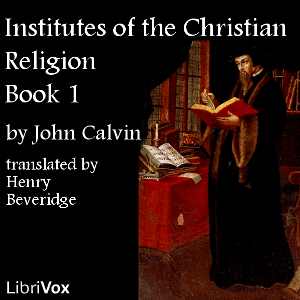
Institutes of the Christian Religion is John Calvin's seminal work on Protestant systematic theology. Highly influential in the Western world and still widely read by theological students today, it was published in Latin in 1536 and in his native French in 1541, with the definitive editions appearing in 1559 (Latin) and in 1560 (French).The book was written as an introductory textbook on the Protestant faith for those with some learning already and covered a broad range of theological topics from the doctrines of church and sacraments to justification by faith alone and Christian liberty, and it vigorously attacked the teachings of those Calvin considered unorthodox, particularly Roman Catholicism to which Calvin says he had been "strongly devoted" before his conversion to Protestantism. The over-arching theme of the book – and Calvin's greatest theological legacy – is the idea of God's total sovereignty, particularly in salvation and election.The Institutes are a primary reference for the system of doctrine adopted by the Reformed churches, usually called Calvinism.Book One of the Institutes treats of the knowledge of God, considered as the Creator, Preserver, and Governor of the world, and of every thing contained in it. (Summary from Wikipedia & preface)
Book 2 may be found here: LINKBook 3 may be found here: LINKBook 4 may be found here: LINK
29 episodes
The World I Live In by Helen Keller is a collection of essays that poignantly tells of her impressions of the world, through her sense of touch, smell, her imagination and dreams.My hand is to me what your hearing and sight together are to you. In large measure we travel the same highways, read the same books, speak the same language, yet our experiences are different. All my comings and goings turn on the hand as on a pivot. It is the hand that binds me to the world of men and women. The hand is my feeler with which I reach through isolation and darkness and seize every pleasure, every activity that my fingers encounter. With the dropping of a little word from another's hand into mine, a slight flutter of the fingers, began the intelligence, the joy, the fullness of my life. Helen Keller, quoted from her essay, The Seeing Hand (Summary from text and Laura Caldwell)
17 episodes
A collection of fifteen short nonfiction works in the public domain. The essays, speeches and reports included in this collection were independently selected by the readers, and the topics encompass humor, history, politics, science medicine, nature, finance, cooking, film and religion. (summary by J. M. Smallheer)
15 episodes

El Castillo Interior or Las Moradas (trans.:The Interior Castle or The Mansions) was written by Saint Teresa of Ávila in 1577. After being ordered to write her autobiographical La Vida de la Santa Madre Teresa de Jesús (The Life of S. Teresa of Jesus), Teresa was hesitant to begin writing again on her views of the perfection found in internal prayer. In the hands of the Inquisition at that time, her Life was commonly believed to be the weight in the scale of whether to call her experiences heretical or not. Her humility and claims that, “I am not meant for writing; I have neither the health nor the wits for it,” almost prevented Teresa from composing The Interior Castle. However, according to a letter written by Fray Diego, one of Teresa’s former confessors, Teresa was finally convinced to write her book after a she received a vision from God. Diego wrote that God revealed to Teresa,
"...a most beautiful crystal globe, made in the shape of a castle, and containing seven mansions, in the seventh and innermost of which was the King of Glory, in the greatest splendour, illumining and beautifying them all. The nearer one got to the centre, the stronger was the light; outside the palace limits everything was foul, dark and infested with toads, vipers and other venomous creatures."
With that, Interior Castle was born. It contained the basis for what she felt should be the ideal journey of faith, comparing the contemplative soul to a castle with seven successive interior courts, or chambers, analogous to the seven heavens. Teresa's consumption of chivalric romances as a child subsequently influenced such imagery, which is prevalent in many of her mystical works. It is also not unduly speculative that living in a walled city like Ávila must have influenced her thinking. The concept of an "interior" life is still important in Spanish thinking in the twenty-first century.
An English translation was published in London in 1852.
(from wikipedia.org)
29 episodes
Anthony Trollope's autobiography will delight you whether or not you've read (or listened to) any of his many works. His honest if self-deprecating tone is at times hilarious and at times piteously moving. His detailed descriptions of his writing process and his philosophy of writing as work rather than art are fascinating. Fans of Trollope will enjoy learning the man's perceptions of his novels' shortcomings and triumphs. Anyone will appreciate learning about his years devoted to churning out literature for profit while working full time with the post office. (Summary by JessicaLouise)
21 episodes
"This book contains the record of a few of the many happy days and novel experiences which I have had in the wilds. For more than twenty years it has been my good fortune to live most of the time with nature, on the mountains of the West. I have made scores of long exploring rambles over the mountains in every season of the year, a nature-lover charmed with the birds and the trees. On my later excursions I have gone alone and without firearms. During three succeeding winters, in which I was a Government Experiment Officer and called the "State Snow Observer," I scaled many of the higher peaks of the Rockies and made many studies on the upper slopes of these mountains." (Summary from the Preface of Wild Life on the Rockies)
15 episodes

Robert Sterling Yard was an American writer, journalist, and wilderness activist. Born in Haverstraw, New York, Yard graduated from Princeton University and spent the first twenty years of his career in the editing and publishing business. In 1915, he was recruited by his friend Stephen Mather to help publicize the need for an independent national park agency. Their numerous publications were part of a movement that resulted in legislative support for a National Park Service (NPS) in 1916. Yard worked to promote the national parks as well as educate Americans about their use. Creating high standards based on aesthetic ideals for park selection, he also opposed commercialism and industrialization of what he called "America's masterpieces". In 1935, he became one of the eight founding members of The Wilderness Society and acted as its first president from 1937 until his death eight years later. Yard is now considered an important figure in the modern wilderness movement.In the preface to this book, published in 1919, he writes, "In offering the American public a carefully studied outline of its national park system, I have two principal objects. The one is to describe and differentiate the national parks in a manner which will enable the reader to appreciate their importance, scope, meaning, beauty, manifold uses and enormous value to individual and nation. The other is to use these parks, in which Nature is writing in large plain lines the story of America's making, as examples illustrating the several kinds of scenery, and what each kind means in terms of world building; in other words, to translate the practical findings of science into unscientific phrase for the reader's increased profit and pleasure, not only in his national parks but in all other scenic places great and small." (summary from wikipedia)
30 episodes
A wickedly funny book of advice on women's dress. However old, fat or plain you are, Dorothy Quigley will tell you what not to wear. (Summary by Ruth Golding)
8 episodes
Ned Wayburn, a popular and outstanding choreographer of the early 1900's, writes about the different styles and requirements of dancing and his way of teaching it.
55 episodes

Marie Francoise Therese Martin, affectionately known as 'The Little Flower', was born on January 2, 1873, in Alencon, France to Louis Martin and Zelie Guerin. She was the youngest and one of five surviving sisters of the nine Martin children. When Therese was 3, her mother died. Louis Martin moved his family to Lisieux to be closer to his late wife's brother and his family. It was there that Therese's sister, Pauline, entered the Carmel at Lisieux on October 2, 1882. Therese at that time also heard the Divine Call to religious life. Therese entered the Carmel on April 9, 1888, after much oppostion to her entering at the age of 15. It was there that she wrote L'Histoire d'une Ame (The Story of a Soul) through obedience. Eventually, Therese's other sisters entered the religious life, one at the Carmel of Lisieux and the other became a Poor Clare at the Visitation Convent at Caen. Therese died on September 30, 1897, at the Carmel of Lisieux of tuberculosis. She was beatified on April 29, 1923 and canonized on May 17, 1925. (Summary written by Ann Boulais.)
13 episodes
A biography of the Polish composer and virtuoso pianist Frédéric Chopin and a critical analysis of his work by American music writer and critic James Huneker. (Summary by Julie VW)
16 episodes
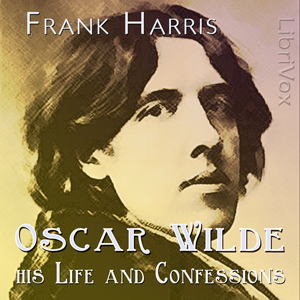
Consumers of biography are familiar with the division between memoirs of the living or recently dead written by those who "knew" the subject more or less intimately, and the more objective or scholarly accounts produced by later generations.
In the case of Wilde, as presented to us by Frank Harris, we are in a way doubly estranged from the subject. We meet with Oscar the charismatic talker, whose tone of voice can never be reproduced – even if a more scrupulous biographer had set down his words accurately – and we are perhaps already aware of him as Wilde the self-destructive celebrity who uneasily fills the place of the premier gay icon and martyr in our contemporary view.
Neither of these images will do. We need to read as many accounts as possible. Harris, though himself a self-advertising literary and sexual buccaneer, takes a wincingly representative view of Wilde’s homophile activity: for him it is a patrician excrescence, the abominable vice of the few, contracted at English boarding schools – though thankfully “not infectious” as far as he himself is concerned.
What a long road we have to travel to arrive at the essentially gay man of today! But there are many shortcuts to take us back to where we came from… (Summary by Martin Geeson)
29 episodes
A collection of sixteen short nonfiction works in the public domain. The essays, speeches and reports included in this collection were independently selected by the readers, and the topics encompass history, politics, medicine, nature and religion. (summary by J. M. Smallheer)
16 episodes
In By Pond and River, another of Arabella Buckley's wonderful science books for children, she explains the habitats of ponds and rivers, exposing children to the animals and plant life that are found there. (Summary by Laura Caldwell)
13 episodes
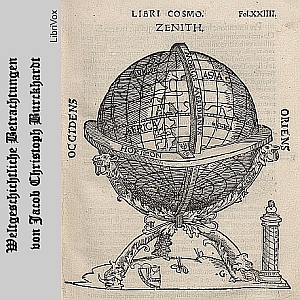
Weltgeschichtliche Betrachtungen von Jacob Christoph Burckhardt (1818 - 1897), herausgegeben von Jacob Oeri (1844-1908). 1905 veröffentlicht.
Des Weiteren wurden aus seinem Nachlass die Griechische Kulturgeschichte und die vielgelesenen Weltgeschichtlichen Betrachtungen veröffentlicht. Burckhardt hatte nie vor, sein Kolleg Über Studium der Geschichte, das er von 1868 bis 1872 dreimal abhielt, zu publizieren. Noch auf dem Sterbebett gab er seinem Neffen Jacob Oeri (1844-1908) den Auftrag, alle handschriftlichen Hinterlassenschaften einstampfen zu lassen, aber die Erlaubnis zur Einsichtnahme konnte ihm Oeri doch noch abringen. Dass diese Einsicht etliche Jahre dauern und mit einer Veröffentlichung enden sollte, war sicher nicht Burckhardts Absicht. Wie bei mehrfach gehaltenen Vorlesungen nicht ungewöhnlich, liegen die Skripte in mehreren Fassungen vor, durchsetzt mit Einschüben und Aktualisierungen. Das erhaltene handschriftliche Material - die Mitschriften von Studenten nicht mitgerechnet - ist etwa doppelt so umfangreich wie der Text, den Oeri dann für die Buchausgabe von 1905 herausgab. Die kühnste Neuerung Oeris war wohl die Veränderung des Titels zu Weltgeschichtliche Betrachtungen.
(Zusammenfassung von Wikipedia)
31 episodes
A guide for women to complement their dress to their surroundings, be it in their own home, on outings or on stage. (Summary by Julie VW)
31 episodes
This is a collection of 14 songs chosen from Walter Crane's "The Baby's Opera" and "The Baby's Bouquet" containing classic nursery rhymes from England, France, and Germany. The songs are sung by LibriVox's very own Carol Stripling.
14 episodes

